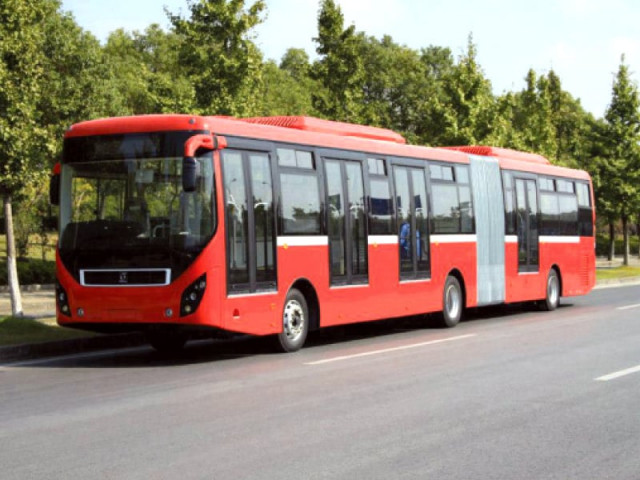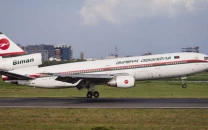Metro bus project: SC questions development that gobbles up greenery
Project awaits final approval from ECNEC.

Project awaits final approval from ECNEC.
Green strips are what define the federal capital. And a long stretch of that is in danger of being charcoaled if the metro bus project is approved and implemented as currently designed.
The Supreme Court Friday came up to protect the sanctity of capital’s master plan that allowed for dotting of the land with green patches.
The Chief Justice of Pakistan (CJP) Justice Tassaduq Hussain Jillani took notice of the ‘flawed’ route alignment of Islamabad section of the project in a bid to avert possible threat to environment.
On March 10, The Express Tribune reported about the proposed design of the project, which mainly provides carving out roads through tree-lined green belts and expanding city’s main arteries beyond limits permissible in the plan.
Taking note of the situation, Senator Mushahid Hussain, who heads a Senate panel on environment, on March 11, filed an application with the Human Rights Cell of the apex court seeking the CJP’s intervention.
“I strongly support a mass transit system for hundreds of thousands of commuters…but I am worried about the impact of such project on the natural beauty and environment of the capital,” Mushahid has contended in his application.
Taking notice of the potential environmental threat, the CJP has sought detailed reports from the Capital Development Authority chairman, Rawalpindi commissioner, Rawalpindi-Islamabad Metro Bus Service project director as to whether it is posing any threat to the master plan and its green belts.
And if the environmental impact assessment (EIA) study has been carried out?
“These reports together with technical reports, if any, by Pakistan Environmental Protection Agency, Punjab Environmental Protection Agency and Climate Change Division are submitted by March 18, 2014,” the court directed.
Nespak, the design consultant for metro bus project, has proposed the expansion of 9th Avenue and Jinnah Avenue which involves the elimination of a green belt stretching over hundreds of acres east of the Agha Shahi Avenue and west of sectors I-8, H-8 and G-8, if the plan is approved.
According to the plan, the IJ Principle Road carriageway of 9th Avenue will be converted into a dedicated corridor for the metro bus, while an additional three lanes will be carved out from the green belt along the 9th Avenue to accommodate traffic heading towards IJP Road from the Kashmir Highway.
While, Jinnah Avenue will be widened up to six metres on both sides, a dedicated corridor for the metro bus will also eat up the emergency lanes on both sides of the avenue.
On Thursday, with certain conditions, the Central Development Working Party (CDWP) had referred the project to Executive Committee of the National Economic Council for the project’s final approval.
CDWP had attached conditions including rationalisation of the project cost, a certificate that the capital’s master plan will not be defied while carrying out the project, the EIA report, the feasibility study and a report on the economic viability of the project.
It had also formed a committee headed by the cabinet secretary to look into the issues related to environmental impacts of the project.
Published in The Express Tribune, March 15th, 2014.



















COMMENTS
Comments are moderated and generally will be posted if they are on-topic and not abusive.
For more information, please see our Comments FAQ